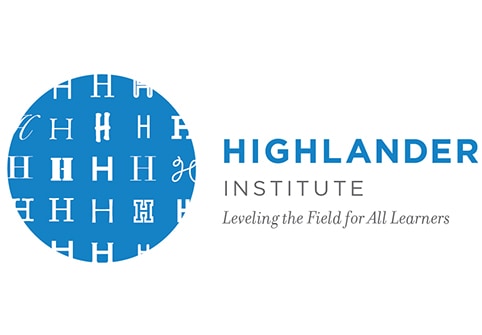Leaders Learning Deeply with the Leadership in Blended Learning and Fuse RI

Beth Rabbitt
At The Learning Accelerator (TLA), we believe that effective principal leadership is absolutely critical for creating and sustaining schools that foster deeper and personalized learning. Given this, as part of TLA’s next human capital initiative, we’re running two experiments aimed at supporting and increasing the capacity of these leaders as they engage in school redesign and transformation.
The first of these programs, Leadership in Blended Learning, was launched by the Friday Institute. The LBL program is a year-long, cohort-based, “blended” professional development program to help school leaders, primarily current principals, understand, create, and execute upon a blended learning vision for their school. We kicked off the pilot of this program in early 2015, partnering with seven organizations across the country who are convening local networks of principals as well as connecting these leaders nationally through a shared curriculum and online platform.
In addition to supporting those already in principal positions, we’re also trying to address pipelines for future leaders as well. In Rhode Island, TLA grantee the Highlander Institute has created a statewide teacher fellowship aimed at helping teachers excelling at the classroom level get the skills they need to become effective system-level change agents. Launched in the fall of 2014, the Fuse RI program identifies and places outstanding blended learning teacher leaders into fellowships. Over the course of two years, these fellows are trained by Highlander staff and provided support as they work directly with district level leaders to help systems plan for and move towards blended and personalized learning.
While these programs are focused on leadership at different levels – and with different levers for authority and change – they both share key elements we believe are essential to effective, deeper learning for adults:
1) Networking and Collaboration. Too often, leaders trying to engage in innovative school work lack peers to problem solve with and learn from. Formal learning programs must make collaborative learning an essential element of design. Fuse RI fellows work in several teaming configurations, including in pairs with their districts, in small group “learning pods” that meet regularly and virtually with an assigned Highlander staffer, and then cross-cohort more periodically for broader training and reflection. Friday Institute participants engage in local PLCs created and facilitated by a lead learners in their networks as well as nationally across all regions. This allows them to have conversations with other principals operating directly in their local context as well as to get ideas from others across the country who might be tackling similar challenges. Orchestrating and participating in this level of networked learning – both at the local level as well as nationally – isn’t necessarily an easy task. Both of these programs dedicate some time to train participants on how to network effectively online rather than assuming leaders know how to do it off the bat.
2) Personalization Through Blended Modalities. Leading a shift to personalized learning is difficult if you’ve never experienced it as a learner yourself. Both of these leadership programs use blended formats, with learners working online and offline. Content is offered in multiple forms (such as videos, articles, papers, and case studies) and there are multiple modalities for learning, including direct instruction, leadership simulations, playlists, and group discussion. Learners are given significant choice about which resources to use and how. By replicating the best of what we hope schools will offer to students, leaders in the programs get to see the benefits and challenges from all sides.
3) Competency-Based Learning. Student learning shouldn’t be measured in seat time; neither should adult learning. Leadership programs should be designed around a core set of competencies we want leaders to build and then should assess initial competency level and development over time. Learners should know what these competencies are from the start and have multiple opportunities for reflection and self assessment along the way. The Highlander Institute developed a set of essential competencies for Fuse RI Fellows that emphasize the skills they would need to move from the level of classroom expert to being a leader of others. These competencies include essential knowledge about blended learning as well as consulting and change management skills.
4) Authentic Assessment. Learning tasks and assessments of mastery in both of the leadership programs are intended to be significant, meaningful, and directly applicable to the learner’s daily work. While this is best practice for professional development generally, it’s also a pragmatic one. Leaders’ time is pretty limited and there isn’t any space for work that doesn’t have direct value on-the-ground. The Friday Institute links the pre-meeting content and prep activity directly to a school-based task (such as an audit of existing professional development activities) that will serve as the fodder for thinking and reflection. The Highlander Institute launches monthly learning “missions” that link both to the competencies Fellows are working on as well as the tasks they need to complete for their districts.
Taken together, TLA expects these two programs will build a cadre of leaders who can step up to lead school change, at many levels. We also hope that the deeper learning elements they are piloting will serve as exemplars for other leadership programs across the country.
This post is part of our “Preparing Leaders for Deeper Learning” series. To learn more, see:
- One Student, 5 Lessons on Leadership
- Why Leaders Matter
- Preparing Principals: Best Practices and Next Steps

Beth Rabbitt is a Partner at the Learning Accelerator. Follow her on Twitter @bethrabbitt.


0 Comments
Leave a Comment
Your email address will not be published. All fields are required.